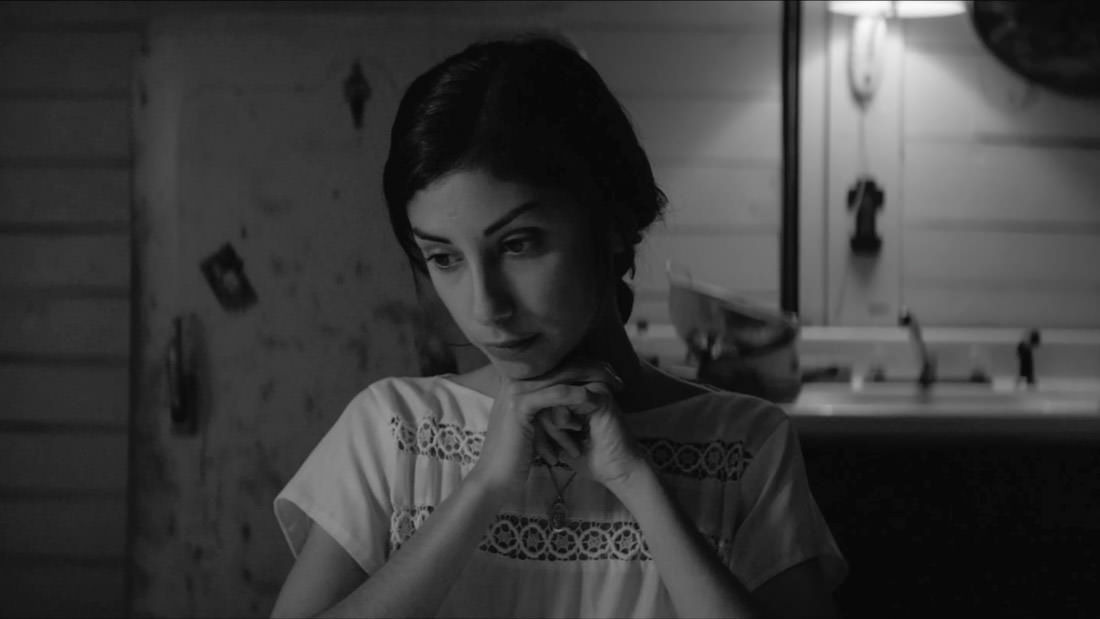Before the launch of the 2016 Next program of the Sundance
Film Festival—a daring section of new filmmakers that gave us “James White”
last year and “A Girl Walks Home Alone at Night” and “Obvious Child” the year
before—the programmer did something unusual. There was a bit of a warning. He
hoped people weren’t just “winging” their schedule and weren’t walking into this
film blind (pun unintended). Often, these kind of prefaces are unearned. We’ve all seen crazy movies at Sundance. Let’s
get to it. In the case of Nicolas Pesce’s “The Eyes of My Mother,” the
warning is entirely warranted. This is a disturbing yet lyrical look at
psychosis, a film that sometimes plays like a cousin of David Lynch’s view of
fractured domesticity but also clearly announces its own voice.
In the film’s opening chapter (it’s divided into three with
title cards), we meet a young girl named Francisca (Olivia Bond), who is being
taught religion and, of all things, surgical techniques by her mother (Diana
Agostini) in a farmhouse that looks well-removed from the rest of society. One
day, a man (Will Brill) comes by the home when their father (Paul Nazak) is
away. The man is almost instantly a threat, the kind of unsettled human being
whom the mother instinctually fears. She relents and allows him into their home
to use the restroom and tragedy strikes. He’s a maniac, in all likelihood a
serial killer, and his arrival sets in motion a series of events involving
murder, mutilation and other things I can’t really describe on a website. I’ll
say this, “The Eyes of Mother” goes places most movies don’t and presents true
psychosis not as a gimmick or character trait but an existence. As Francisca ages
(and is played by the very effective Kika Magalhaes), she seems almost as if
she’s stuck in a cycle of violence, unable to see value in human life.
In gorgeous black-and-white, shot by Zach Kuperstein (who
announces his presence with this film as well, his first feature), “The Eyes of
My Mother” allows us a window into a truly unsettling existence. At no point
does the film feel like it’s justifying or explaining the actions of Francisca.
It contains some of the most memorable, almost poetic visual compositions in a
very long time, tableaus that convey a world driven by mind-shattering loss.
Yet we are observers far more than we are asked to “understand” dementia, which
is often the problem with films about violent, twisted people. The result is a
film that plays more like poetry than prose—other than a quick detour to a bar
and a guest who comes home with Francisca afterward, there’s little sense of
when the story takes place. It’s more of a terrifying dream state, and there
are images that have that sort of Lynchian waking nightmare sensibility.
“The Eyes of My Mother” is produced by Borderline Films—Sean
Durkin (“Martha Marcy May Marlene”), Antonio Campos (“Simon Killer” and this
year’s Sundance entry “Christine”) and Josh Mond (“James White”)—and it bears
their attention to detail, especially in visual compositions and breathtaking
sound design. Much of “The Eyes of My Mother” contains no dialogue. There’s no
narration. There aren’t the traditional filmmaking cues to take audiences by
the hand and usher them from plot point to plot point. It’s the kind of film
that seeks to unsettle you, to get your heart racing, to confuse you, to invade
your dreams. Movies at Sundance often blend into each other, so much so that
the phrase “Sundance Movie” often conjures a specific image in people’s minds.
Nothing about “The Eyes of My Mother” blends into the other movies I have seen
or will see not just at Sundance but for the rest of the year. It is a defiant
announcement of a new talent, the perfect way to kick off a program built
around what’s “Next” in filmmaking.












